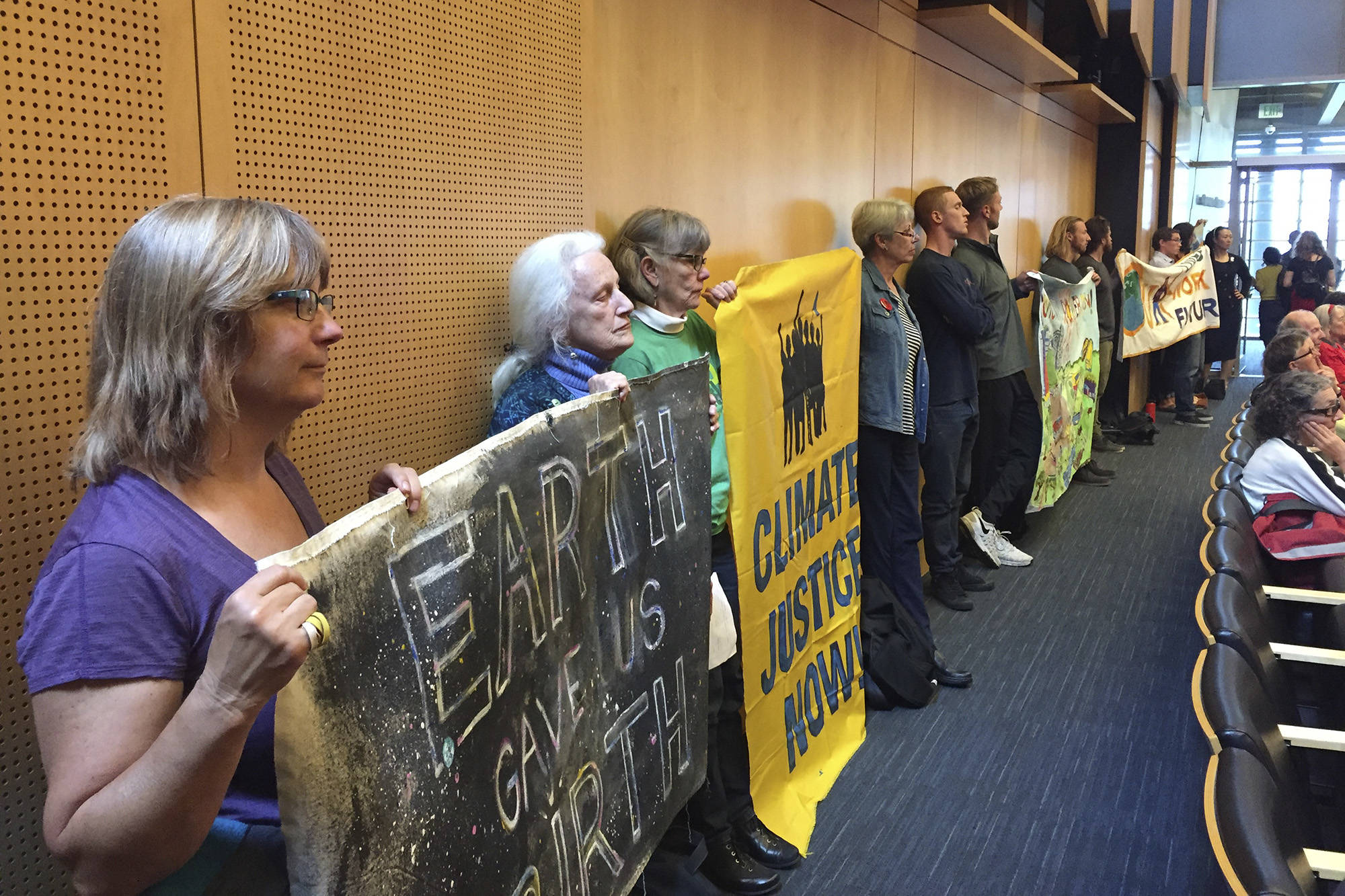The Seattle City Council unanimously passed a resolution Monday that commits the city to do its part to uphold the Paris climate accord, making this the latest — and the most specific — local statement following President Donald Trump’s decision to exit the global agreement on June 1. Some of the resolution’s strongest words are reserved for Puget Sound Energy, the private utility that is currently negotiating a new contract for coal power.
“We know the threats that climate change poses,” said Councilmember Mike O’Brien, the resolution’s sponsor, in front of a room packed with climate activists (the resolution was developed collaboratively with the Sierra Club and 350 Seattle, as well as the city’s Office of Sustainability and Environment). “Seattle has a very bold Climate Action Plan. This resolution recommits us to that. But that plan assumes actions at the federal level,” he said — assumptions that may no longer be reliable. As a result, the resolution asks the City to re-evaluate its plan and figure out “what additional actions we have to take locally.”
Among those additional actions is the call for Puget Sound Energy to end its operations at Colstrip, a massive coal-fired power plant in Montana, by 2025, and replace it with 100 percent renewable energy. “If a private utility operating in Seattle’s backyard needs to rely on burning coal, then we have much bigger challenges than we thought,” said O’Brien in a statement, noting that Colstrip is the third-largest single source of carbon emissions in the country.
Puget Sound Energy provides natural gas services and electricity to nearly 2 million customers in the region, and about a third of its electric power supply comes from Montana coal. While PSE and Colstrip co-owner Talen Energy agreed last summer to shut down the two oldest, dirtiest units at the plant by 2022, there is no firm closure date for the other two, larger and more modern units (Units 3 and 4). In fact, the company is in the process of negotiating a new contract with the operator of the Rosebud Mine, the 25,000-acre strip mine that supplies Colstrip with its coal.
“A current renegotiation of the fuel supply agreement will create greater flexibility for PSE on behalf of our customers,” PSE says in a statement it provided to Seattle Weekly. “The revised agreement ends in 2029 and includes options that recognize the rapid changes in energy technology and customer needs.” PSE adds that “we anticipate phasing out use of [Colstrip electricity] for our customers around 2035,” although PSE officials reportedly told the Seattle Times that that date would be closer to 2030.
Either way, climate activists want coal to be off the PSE grid by 2025 at the latest. Doug Howell, senior campaign representative for the Sierra Club’s Beyond Coal Campaign, notes that the King County Climate Action Plan — which Seattle and 12 other King County cities signed onto — calls for the complete phase out of coal-fired electricity by that year. King County customers represent about half of PSE’s total customer base. Could King County meet its goals if PSE doesn’t pull out of Colstrip? “It can’t,” says Howell.
He adds that the first emissions-reduction goals the Paris accord calls for — 26 to 28 percent below 2005 levels — is by 2025, and the company that operates the Rosebud Mine recently told the Securities and Exchange Commission that it has enough coal to supply Colstrip through 2024. All of this creates a “perfect storm,” Howell says, to put even more pressure on PSE. Monday’s resolution “is one of the strongest statements from an elected body we’ve seen against fossil fuels in the state,” says the Sierra Club’s Caleb Heeringa.
The resolution also takes firm stances against fossil fuel infrastructure projects in the Pacific Northwest, including the proposed methanol refinery in Kalama, Wash., and the proposed Tesoro-Savage oil export terminal in Vancouver. It calls for the Seattle City Employees’ Retirement System (SCERS) board to look into divesting city pensions from fossil fuels, and supports “an equitable and effective price on carbon pollution.”
Howell adds that he appreciates that Seattle’s resolution takes a position on all of these things. In addition to Colstrip, “these other major [fossil fuel] investments … are really a bad mistake. We do not want to be spending hundreds of millions, if not billions, on new fossil fuel infrastructure, when there are better alternatives.”
Monday’s resolution is the latest example of local leaders vowing commitment to climate goals after the U.S. exit from the Paris agreement. Following Trump’s decision, Mayor Ed Murray joined 291 other mayors from across the country promising to “adopt, honor, and uphold the commitments to the goals enshrined in the Paris Agreement.” Murray also signed another letter — called “We Are Still In” and developed by a group of 1,219 mayors, governors, businesses, investors, colleges, and universities — that promises to deliver “concrete emissions reductions” to help meet the promises of Paris. And Gov. Jay Inslee, along with New York and California governors Andrew Cuomo and Jerry Brown, formed the United States Climate Alliance, which now has a total of 13 state members, all of which also commit to taking “aggressive” actions toward upholding the accord.
sbernard@seattleweekly.com








